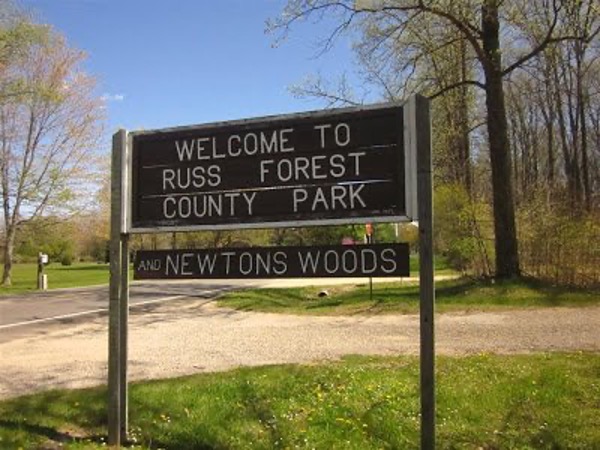FCCP researchers received grant to establish climate adaptive silviculture demonstration site
FCCP researchers receive funding to establish a climate adaptive silviculture demonstration site to foster carbon resiliency at the Fred Russ Experimental Forest.

Dr. Chad Papa, FCCP Director, Dr. David Carter, assistant professor of silviculture – Michigan State University Department of Forestry, and Dr. Adrienne Keller, research assistant professor – Northern Institute of Applied Climate Science & College Forest Resources and Environmental Science, Michigan Technological University, received two years of funding from the Fred Russ Endowment Fund to develop a demonstration site showcasing climate adaptive silviculture techniques to foster carbon resiliency.

The project will establish a long-term demonstration site showcasing approaches to managing forests for climate change considerations. Treatments will include a control site, various intensities of harvest treatments, invasive species controls, and assisted migration and tree plantings. The demonstration site will feature a set of permanent monitoring plots to track carbon dynamics seeking to inform on-the-ground management actions and evaluate stand-level responses to forest adaptation interventions. Further, the team will develop a suit of educational and outreach materials seeking to introduce forest managers and landowners to concepts, approaches, and tools that help integrate climate change considerations into forest management decision-making while strengthening FCCP’s collaborations across the Midwest.
The Fred Russ Experimental Forest (FREF) was established in 1942 as a gift of 580-acres of forested land to MSU’s Department of Forestry. The FREF has grown to more than 900 acres in Volinia and Newberg Townships, encompassing a diversity of forest ecosystems including old growth, young forest, plantation trials, and recently harvested plantations. FREF is also listed on the National Park Service National Natural Landmark. FREF has recently experienced some forest health issues related to oak species leading to widespread white oak mortality in certain areas. Fred Russ Forest has a unique quality that combines forestry research and in a setting that is also conducive to forest recreation. The diversity of sites offers numerous opportunities for research, outreach/ extension, and teaching. FREF is accessible to the public via foot and by non-motor vehicles via a country roadside park and remains popular with hikers, runners, and local nature enthusiasts.
Learn more about Fred Russ Forest here: https://www.canr.msu.edu/fredruss/ & https://www.canr.msu.edu/fredruss/fredruss_visitor_information



 Print
Print Email
Email




